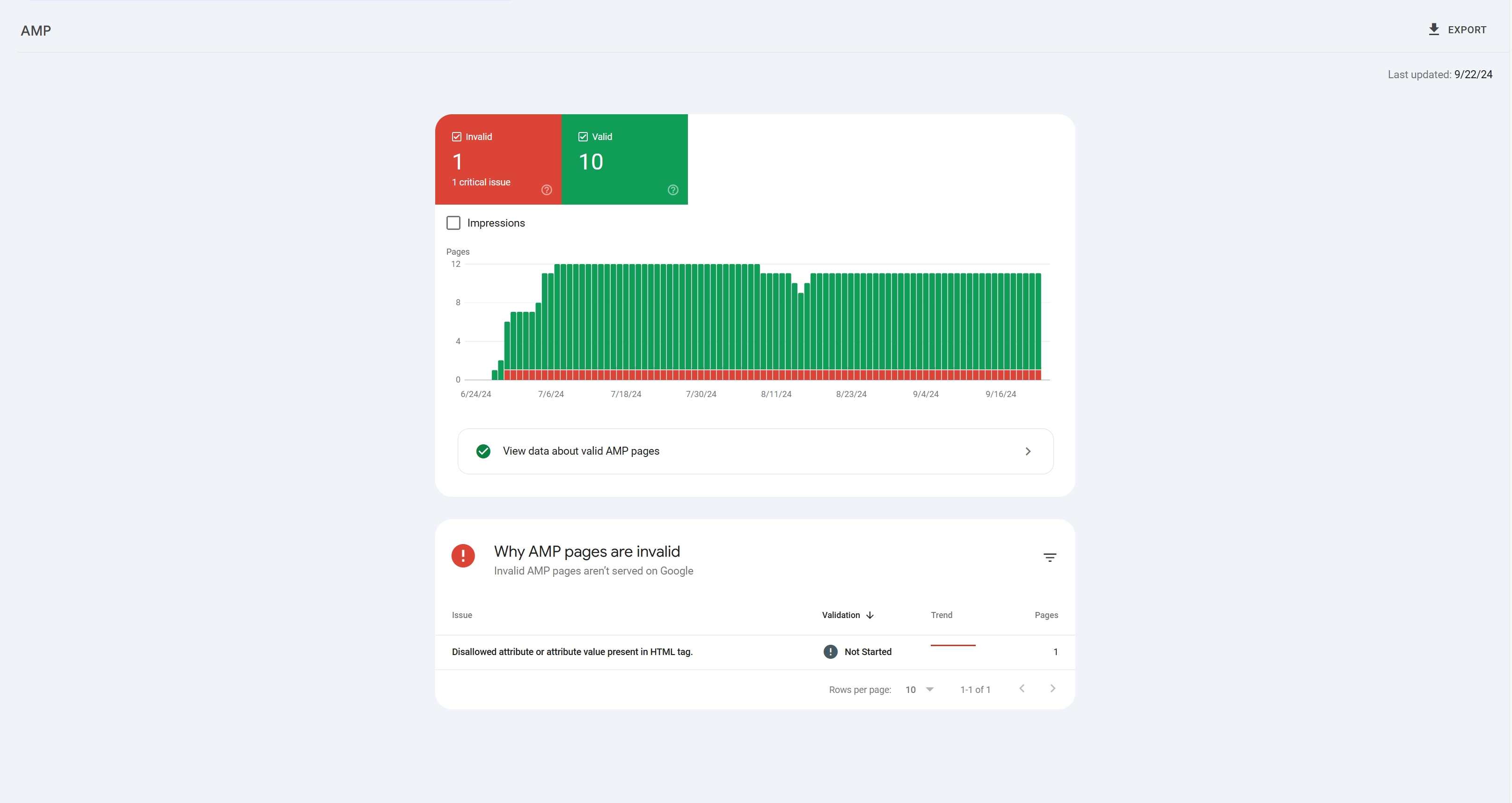AMP Integration Services:
Boost Your Website’s Speed and Performance
At Assure Studios, we provide expert AMP (Accelerated Mobile Pages) integration services designed to enhance your website’s performance and user experience. AMP is a cutting-edge framework that ensures lightning-fast load times, offering seamless browsing across all devices—whether desktop or mobile. Our team specializes in implementing AMP technology to make your site faster, more reliable, and highly competitive in search engine rankings.
What is AMP?
AMP, short for Accelerated Mobile Pages, is a technology developed by Google in 2015 to drastically improve the speed and performance of web pages. By utilizing a simplified version of HTML and a streamlined JavaScript framework, AMP enables your pages to load almost instantaneously. Although AMP was originally created to optimize mobile web pages, it’s now equally effective for desktop sites, giving your users a consistent and fast experience on any device. This is the official AMP project page—check it out here.
How AMP Works
AMP functions by stripping down your web pages to their essential elements, making them lightweight and lightning-fast. It achieves this through simplified HTML, restricted JavaScript, and pre-rendering by Google. As a result, AMP-powered pages load instantly when users access them, regardless of their network speed or device. This makes AMP a vital tool in delivering fast, reliable content that keeps users engaged.
AMP and WordPress Integration
At Assure Studios, we specialize in integrating into WordPress websites, ensuring a smooth transition to faster, more optimized pages. Our team works with a variety of AMP plugins that are specifically designed for WordPress, transforming your existing content into AMP-ready versions. Whether you need full-site AMP integration or targeted optimizations for specific pages, we tailor our approach to fit your website’s needs and goals. You can learn more about the AMP project and its WordPress plugin here.
Why AMP is Not Just for Mobile
While AMP was initially focused on mobile optimization, its benefits now extend to desktop pages as well. Implementing AMP ensures your website is fast and efficient across all platforms, providing a consistent user experience and improving your site’s overall performance metrics. AMP is no longer just a mobile solution; it’s a comprehensive tool for improving web performance across the board.

AMP and Google Search Console
Using AMP in conjunction with Search Engine Console is essential for monitoring your site’s performance. Once your AMP pages are live, you can track how they perform in Google search results.
Search Console provides insights into page loading speeds, any potential AMP-related issues, and how your AMP content appears in search. This helps you optimize for both performance and SEO, ensuring your AMP pages are not only fast but also easy to find by your audience.
AMP Validation
Ensuring your AMP pages are properly optimized is crucial for delivering fast, reliable experiences to your users. AMP Validator This a tool that helps you confirm whether your AMP pages meet the necessary standards. By inputting your URL into the validator, you can check if your pages are fully compliant with AMP requirements. It provides instant feedback, highlighting any errors or improvements needed, allowing you to maintain high performance and search visibility.
The Benefits of AMP for Your Website
- Faster Load Times: AMP pages load almost instantly, drastically reducing the wait time for users.
- Enhanced User Experience: With faster loading speeds, your website delivers a smoother, more satisfying browsing experience.
- SEO Boost: Google prioritizes AMP-enabled sites in search results, helping your site achieve higher rankings.
- Mobile Optimization: AMP ensures that your mobile site is as fast and responsive as possible.
- Increased Engagement: Faster, more reliable pages reduce bounce rates and improve user interaction.
- Reduced Server Load: AMP’s lightweight structure decreases server strain, improving overall site performance.
FAQ'S
What is AMP and why should I use it for my website?
AMP (Accelerated Mobile Pages) is a technology developed by Google to improve the speed and performance of web pages. By using a streamlined version of HTML and JavaScript, AMP enables your pages to load almost instantly, providing a better user experience. Implementing AMP can help increase your site’s loading speed, improve mobile performance, reduce bounce rates, and boost your search engine rankings.
Can AMP be used with WordPress websites?
Yes, AMP can be easily integrated into WordPress websites using various AMP plugins. These plugins help transform your existing content into AMP-compliant pages, ensuring faster load times and better mobile performance. At Assure Studios, we specialize in integrating these plugins into WordPress sites to optimize performance while maintaining your site’s design and functionality.
How can I check if my AMP pages are valid?
You can check the validity of your AMP pages using AMP Validator By entering your page’s URL, the tool will analyze the content and provide feedback on any issues or errors that need to be resolved. Regular validation helps ensure your AMP pages remain optimized for speed and compliance, improving user experience and search engine visibility.
Contact Us for AMP Services
Is your website in need of a speed boost? At Assure Studios, we have the expertise to integrate AMP and optimize your site for maximum performance. Contact us today to learn more about how our AMP services can help supercharge your website. Contact us at sales@assurestudios.com
